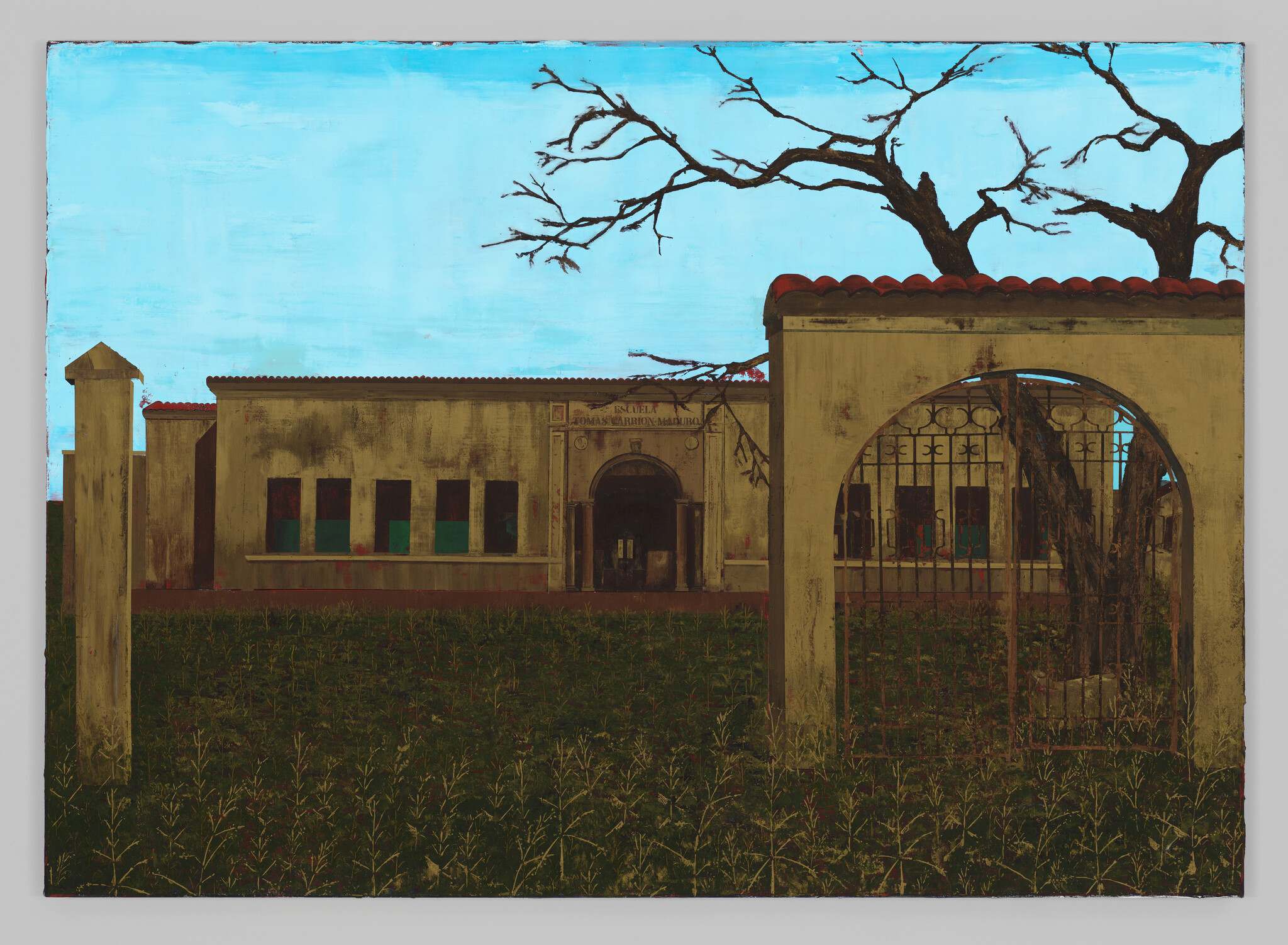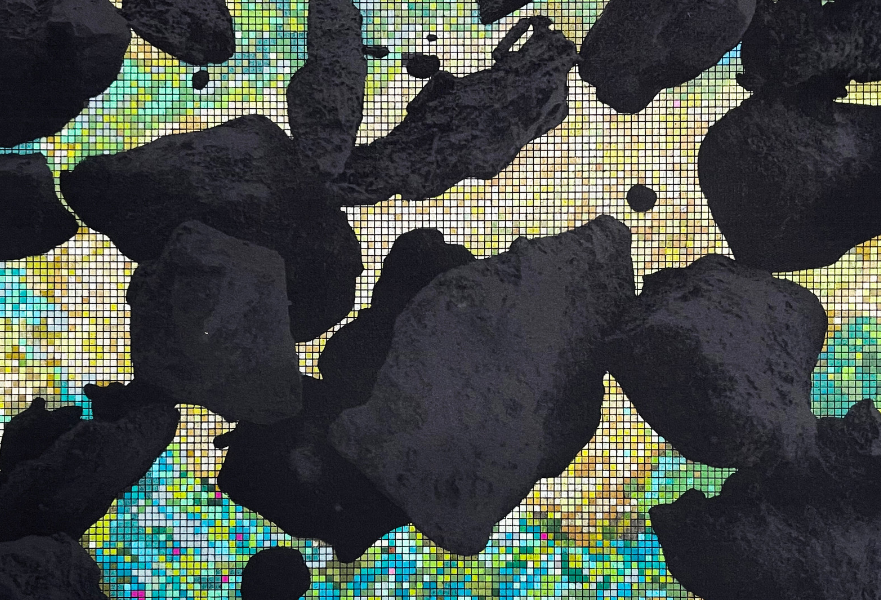Rogelio Báez Vega, Paradox of the New Landscape IV, 2018
Nov 1, 2022
0:00
Rogelio Báez Vega, Paradox of the New Landscape IV, 2018
0:00
Rogelio Báez Vega: My name is Rogelio Báez Vega.
Narrator: The earliest of these paintings is called the Paradox of the New Landscape IV. It’s the one that centers on a white, run-down shipping container. Báez Vega painted the canvas while participating in an artist’s residency in Massachusetts.
Rogelio Báez Vega: This piece was born to some degree out of powerlessness, of not being on my island, at a moment when people are thinking about how to solve problems after Hurricane Maria. And I got the news, you know, that they are closing schools.
Narrator: The schools began closing even before the hurricane due to austerity policies, and this process accelerated after Maria. Today, hundreds of schools across the archipelago remain closed.
Rogelio Báez Vega: My work has this element of premonition. I am interested in how we see ourselves and the landscape we will construct in the future, and in this canvas, what I am doing is painting what is going to happen with that space, and what the future of that space is. What is the future of an already-failed project? So, it’s like a tautology, a cold, dystopian, apocalyptic vision of what is going to happen with that idea of putting the students in this small space.
Narrator: The most recent of the canvases pictures the school that the artist had attended as a child. When Báez Vega painted it, the building was—as the title suggests—new to the market. It has now been purchased by a private company, and is being used as storage.
Rogelio Báez Vega: The number of students is declining and they are using that as an excuse to try to close schools to save money, because they want to save on the costs of maintaining the schools and to try to move the kids, but I think there’s a worldwide agenda. In the United States, school buildings are the most iconic and special ones, with classic buildings, and even if they are modernist, from the modern era, they are worth something on the market, and there is an agenda that combined those two factors, and it makes it very attractive to build a hotel that looks like a Casablanca hotel.
It’s a little complicated, isn’t it, how it all works, and it has something to do with why there is no plan—corruption and following the market are more important than educating or any plan for education.


